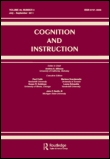tandfonline.com – Children’s Spontaneous Additive Strategy Relates to Multiplicative Reasoning
tandfonline.com har udgivet en rapport under søgningen “Teacher Education Mathematics”: Abstract Abstract We examine a hypothesis implied by Steffe’s constructivist model of children’s numerical reasoning: a child’s spontaneous additive strategy may relate to a foundational form of multiplicative reasoning, termed multiplicative double counting (mDC). To this end, we mix quantitative and qualitative analyses of 31 fourth graders’ responses during clinical, task-based interviews. All participants spontaneously used one of three additive strategies—counting-on, doubling, or break-apart-make-ten (BAMT)—to correctly solve an addition word problem (8 + 7). We found between-group differences, with asymmetric association of those ordinal variables. We found counting-on to be mainly related to premultiplicative reasoning and BAMT to mDC reasoning. We discuss the theoretical significance and implications of this corroboration of Steffe’s model. Link til kilde

